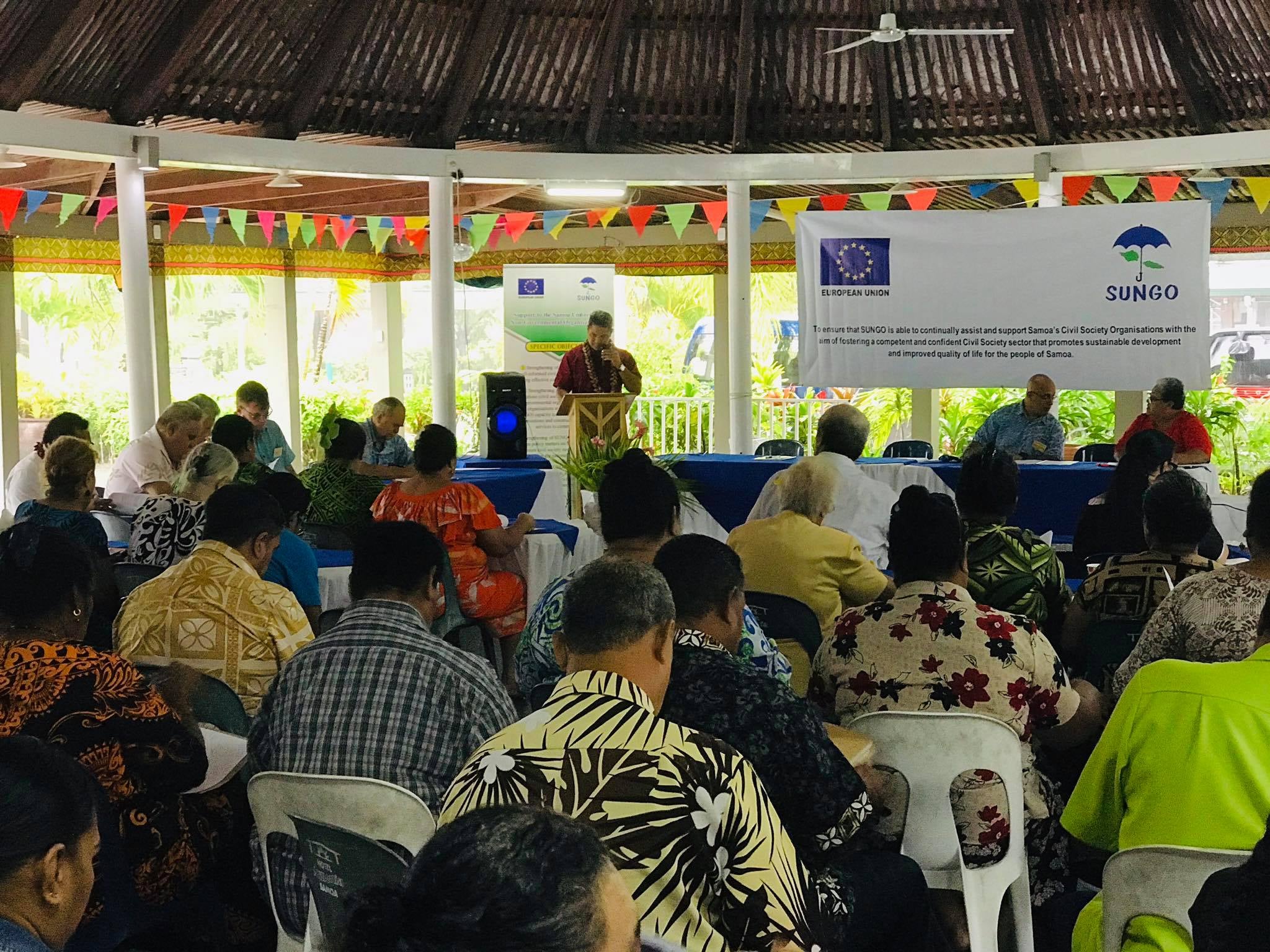Civil society can be understood as the sector of society which is distinct from both government and business, often networked through community and religious organisations. Civil society could be described as a community of citizens linked by common interests and collective activity
Civil society organisations (CSOs) are not-for-profit, voluntary organisations formed by people in the community that are separate from the State (Government) and the business sector. CSOs represent a wide range of interests and ties
Broadly there are two main types of CSO.
Non Government organisations (NGOs) usually operate on a national basis and are focussed on
national issues or concerns. Their activities can be focused on advocacy on behalf of interest groups
(eg the rights of the disabled, environmental issues), on the delivery of services to disadvantaged
groups (eg disability services or cancer patient support) or a combination of both
advocacy
and service
provision. In Samoa, an NGO must be registered with the Ministry of Commerce, Industry and Labour
(MCIL) as an Incorporated Society and adhere to the requirements involved.
Community based organisation (CBOs) usually operate at a community or village level with a focus
on providing services or support to their community. Examples include Youth groups, church
organisations, womens committees. They are not required to be registered.
NGOs are generally governed by a Board which ensures that the organisation meets its goals, set
the policies of the organisation and ensure the NGO operated within an agreed budget. Such NGOs
employ a manager or CEO and staff to manage the day to day operations of the NGO and who are
accountable to the Board for achieving results. There are some nationally based NGOs which do not
employ staff and which are based on an elected Committee which both governs and manages the
organisation.
CBOs do not usually employ staff and their activities are both governed and managed by an elected
Committee.
Both NGOs and CBOs generally appoint their Boards or Committees through an Annual General
Meeting (AGM) at which the office holders (usually Chairperson, Vice Chairperson, Treasurer,
Secretary) and members of the Board or Committee are elected
Civil society organisations play an important role in Samoa. In their area of interest they are able to
have input into government policy or can advocate publicly on issues that concern the community and
help influence the direction of discussion. Recent activities have included raising the awareness of the
community about the political and election process and how people in the community can influence
the political process.
Civil society organisations also provide many of the social services that in other countries may be
provided through government. Examples include the provision of mental health services and services
for the disabled.
As described earlier, NGOs are required to maintain registration with the Ministry of Commerce Industry and Labour (MCIL) and to be Incorporated.
Some requirements of an Incorporated Society include:
Donors generally make it a requirement that an NGO be Incorporated in order to quality for funding. Donors generally set standards that all CSOs are expected to meet in terms of how they manage their organisations and their programmes.
CSOs must complete the application form and provide details about their organisation, its purpose and the details of the office holders. Additionally NGOs or Trusts which wish to apply must be registered with MCIL. You can find more details by Clicking Become a Member on the Homepage
Some nationally based NGOs include the Samoa Cancer Society, the Samoa Conservation Society, Nuanua o le Alofa (NOLA). CBOs include many church, womens and youth organisations at local level.

SUNGO members at the Annual General Meeting